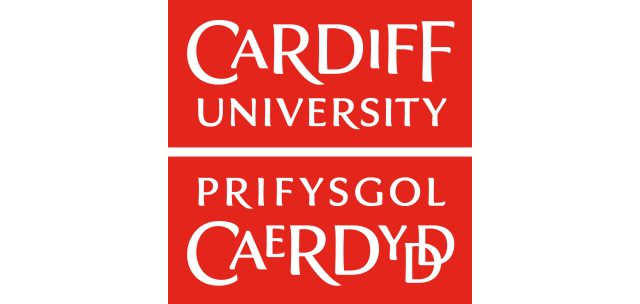Ciencias de la Computación con Seguridad y Forense
Cardiff, Reino Unido
Grado en Ciencias (BSc)
DURACIÓN
3 años
IDIOMAS
Inglés
PASO
Tiempo completo
PLAZO DE SOLICITUD
FECHA DE INICIO MÁS TEMPRANA
TASAS DE MATRÍCULA
GBP 28.200 / per year

FORMATO DE ESTUDIO
En el campus
Otorgado por: Universidad de Cardiff (Prifysgol Caerdydd)
El título de Licenciado en Ciencias de la Computación con Seguridad y Forense tiene como objetivo proporcionarle una comprensión firme de los principios, herramientas y tecnologías necesarias para garantizar que la inversión de una organización en tecnología de la información y las comunicaciones satisfaga sus necesidades de manera segura.
Los estudiantes en este curso desarrollarán habilidades técnicas, analíticas y profesionales transferibles, respaldadas por una amplia conciencia de las tendencias tecnológicas actuales, particularmente en el campo de la seguridad informática. El curso cubre una mezcla de técnicas y conceptos básicos y una materia evolutiva basada en la tecnología.
El uso comercial de las aplicaciones web y los crecientes casos de cibercrimen han cambiado fundamentalmente la naturaleza de la seguridad de la información. Como una preocupación para las grandes empresas y los consumidores, los graduados con conocimientos de seguridad informática y análisis forense son excepcionalmente valiosos para muchos empleadores.
Los graduados pueden analizar objetivamente problemas y desarrollar soluciones computacionales apropiadas. Su conocimiento detallado de la seguridad informática y el análisis forense digital lo hará adecuado para una variedad de carreras profesionales y buscadas por los empleadores.
Características distintivas
El curso no requiere ningún conocimiento previo o experiencia en informática o seguridad informática. Comenzará sus estudios con un módulo de un mes de duración que establece conceptos y competencias centrales y apoya la transición a estudiar en una universidad. Desarrollará su comprensión de la informática, la seguridad de la información y el análisis forense digital a través del trabajo del proyecto y las opciones de módulos. Un laboratorio de enseñanza dedicado a la seguridad informática y la ciencia forense digital respalda este estudio.
Nuestro enfoque de seguridad y análisis forense es que deben considerarse primero desde la perspectiva de las necesidades y requisitos del negocio, luego seguir una implementación sistemática en entornos corporativos a través de la evaluación de riesgos, la política de seguridad y, finalmente, la implementación técnica de técnicas de seguridad.
Loans and Grants
Financial support information for students.
Bursaries
We wish to ensure that financial circumstances are not a barrier to your undergraduate study opportunities.
Scholarships
We wish to recruit the very best students and to help us achieve this, we offer a number of scholarships.
Part-time Undergraduate Funding
Information about funding for part-time students.
Financial Support for Asylum Seekers
Information for asylum seekers about the financial support we offer undergraduates and options for funding from outside the University.
- Pensamiento Computacional
- Aplicaciones web
- Resolución de problemas con Python
- Desarrollo de software de calidad
- Arquitectura y sistemas operativos
- Matemáticas para la informática
- Programación Java Orientada a Objetos
- La interacción persona-ordenador
- Sistemas de bases de datos
- Mejorando su empleabilidad
- Proyecto de grupo
- Redes de comunicación
- Orientación a objetos, algoritmos y estructuras de datos
- Matemática Computacional
- Procesamiento de datos y visualización
- Modelado de sistemas
- Informática
- Introducción a la teoría de la computación
- Computación científica
- Arquitecturas distribuidas y empresariales
- Bases de datos a gran escala
- Seguridad
- Forense
- Tecnologías emergentes
- Proyecto individual de un semestre - 40
- Conocimiento administrativo
- Optimización combinatoria
- Inteligencia artificial
What Skills Will I Practise and Develop?
Knowledge & Understanding
On successful completion of the Programme you will be able to demonstrate:
- An understanding of the broad range of concepts, principles and theories underpinning Computer Science
- An ability to describe computing systems and solutions to problems
- An understanding of the representation of data in structured forms and its interplay with the implementation of algorithms
- Una comprensión especializada de la seguridad y la ciencia forense en un contexto teórico y aplicado.
- Comprensión de los conceptos de riesgo y seguridad en informática y técnicas de codificación segura.
Intellectual Skills
On successful completion of the Programme you will be able to demonstrate:
- Capacidad para evaluar críticamente los sistemas informáticos y las soluciones a problemas, incluidos los que surgen en seguridad y ciencia forense.
- An ability to objectively analyse computational problems and develop appropriate, creative solutions
- An ability to model complex scenarios to design computer systems that meet stated requirements
- An ability to select, derive and analyse appropriate algorithms to solve computing problems
- An ability to recognise and specify the constraints, requirements and trade-offs in the design of computer systems
- Capacidad para aplicar herramientas y técnicas apropiadas para asegurar el desarrollo de software.
- Capacidad para identificar debilidades en el software y la arquitectura del software.
Professional Practical Skills
On successful completion of the Programme you will be able to demonstrate:
- Awareness of relevant professional, ethical, legal and social issues that arise in the implementation of existing and future computer systems
- An ability to pursue opportunities for career development and lifelong learning and appreciate the importance of commercial awareness
Transferable/Key Skills
On successful completion of the Programme you will be able to demonstrate:
- An ability to effectively communicate ideas, principles and theories by oral, written and electronic means
- An ability to work effectively in a team and as an individual
- An ability to make effective use of a range of IT systems
Las estadísticas recientes muestran que la gran mayoría de nuestros graduados están siguiendo sus trayectorias profesionales elegidas en roles como
- Ingeniero de software
- Desarrollador web
- Programador
- Desarrollador de software asociado
- Analista de Negocios y Oficial de Desarrollo de Sistemas.


